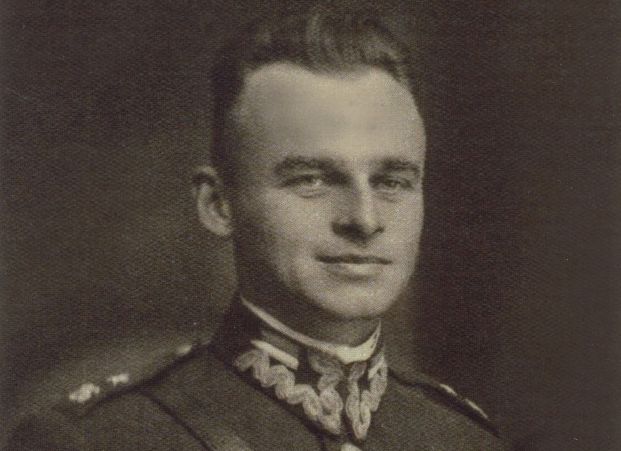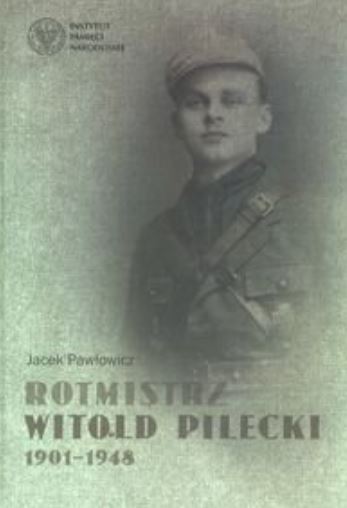Witold Pilecki was born in Ołoniec on 13 May 1901. An officer of ZWZ-AK, in 1940 he volunteered to let himself get arrested by the Germans and transported to Auschwitz in order to obtain information about the camp; after escaping from Auschwitz, he fought in the Warsaw Uprising. In 1947 Pilecki was arrested by the Security Services, tortured and accused of intelligence activities for the Polish Government-in-Exile; he was sentenced to death.
On the 120th anniversary of Witold Pilecki's birth we would like to once again present an article written by the President of the IPN, Jarosław Szarek Ph.D. as part of the “We are telling the World about Poland” project.
"Witold Pilecki - one of the Bravest People in the World" has, to quote Jarosław Szarek, "become a symbol. To Poles, Pilecki’s biography represents the history of their homeland. Difficult choices, glory, and suffering. His heroism, almost doomed to be forgotten, is being rediscovered today. These are all reasons why Poles are so fascinated by him. But they also prove the belief deeply rooted in Poles – the truth always prevails."
If we are to tell the world about Poland, about us, about our identity, history, and our Polish heroes, then we should not forget this story – writes Jarosław Szarek, Ph.D.
A quarter of a century ago, Witold Pilecki was unknown to most Poles. Today, he is a hero in Poland, where streets are named after him. Young people often choose him as the patron of their schools or scout teams. The anniversary of his death is commemorated almost like a public holiday. Thirty years after the collapse of the communist dictatorship in Poland and the end of Soviet domination in Central Europe, Pilecki has become a symbol of Polish heroism and patriotism.
The British historian, Professor Michael Foot, called Witold Pilecki one of the six bravest people in the world, fighting in an underground movement during the Second World War. Pilecki, as a soldier of the Polish underground army, undertook a special mission to penetrate Auschwitz in order to learn the truth about the fate of thousands of people held behind barbed wire. Many years later, he expressed his opinion that Auschwitz was nothing compared to communist torture. These words were spoken by a person who had come to know not only the hell of the German concentration camp, but also the bloody reality of the two great wars fought by Poles – in 1919–1921 against the Bolsheviks and in September 1939 against the German aggressor.
Witold Pilecki was born at the beginning of the 20th century, on May 13, 1901. It was a time when Poland did not appear on the map of the world. At the end of the 18th century, the lands of the Polish-Lithuanian state (including the area of present Belarus and Ukraine) were seized and divided by three neighbours: Russia, Austria and Prussia. The entire 19th century consisted of a series of armed uprisings undertaken by successive generations, in which the ancestors of Witold Pilecki participated.
However, it was not until 1914, when Poland’s oppressors clashed against each other in the Great War, that the unfavourable geopolitical situation changed, which enabled the Poles to regain independence after 123 years.
Witold Pilecki grew up during a period in which the Polish state was being rebuilt. At the very beginning, the Poles had to fight for almost every part of their border. Pilecki, as an eighteen-year-old boy, fought to defend Vilnius. Then in 1920, along with hundreds of thousands of determined soldiers, he took part in stopping the Bolshevik army in their march to the west with the aim of reaching the end of western Europe. The defence of Warsaw, known in Poland as the Miracle on the Vistula River, not only saved the young state, but also thwarted Lenin’s plans to spread communist ideology as far as Berlin and Paris. When the longed-for peace finally came, young Witold gave up his military career and focused on his family estate. He started a family. No one could foresee the tragedy that was about to happen.
In September 1939, Poland’s aggressive neighbours, Germany and Russia, once again desired to divide its lands between themselves. Hitler and Stalin’s agreement and their joint assault on Poland (the effect of the Molotov –Ribbentrop Pact) began the Second World War. Pilecki went to the front to once again defend his homeland. However, thirty-five days of bloody struggle did not save the country. The Poles did not accept the loss of their independence. They created an underground state on an unprecedented scale. Structures of the Polish underground were able to operate in spite of the ever-present terror of the German Gestapo and the Russian NKVD. Of course, Witold Pilecki joined the ranks of the hundreds of thousands of members of the resistance movement.
In September 1940, he undertook an extraordinary mission. He volunteered to be captured during a round-up conducted by the Germans in Warsaw. This way, he was able to get into the German concentration camp in Auschwitz. His task was to gather information about the conditions in the camp. A month later, he sent a report to his superiors. As prisoner number 4859, he remained in Auschwitz for two years and seven months. During that time, he organised the conspirational Military Organisation Union, consisting of over a hundred people in all commando units. He meticulously documented the grim reality of the camp, but threatened with arrest and execution, he decided to make a daring escape.
As a fugitive from Auschwitz, Pilecki had to remain in hiding, but under a false name, he returned to the ranks of the resistance. On August 1, 1944, an uprising broke out in Warsaw which had been terrorised by the Germans for nearly five years. Having received news of the Polish uprising, Stalin ordered the Red Army, as they pushed west, to stop. The Soviet troops stood on the banks of the Vistula and for 62 days of unequal struggle on the streets of the Polish capital, they idly watched the tragedy that was taking place on the other side of the river. The result?: 200,000 killed; over half a million refugees; 50 per cent of the city destroyed; desecrated and demolished temples; and the city centre completely levelled. Warsaw. Witold Pilecki was among the heroic participants of the uprising who stood on the barricades and who ended up in a German POW camp after the fighting had ended.
After the war, he returned to Poland, where the Soviet occupation began. He built a network of conspirators, thanks to whom he would provide the legal Polish authorities in London with information about the spread of communism and terror in Poland. However, he was arrested and sentenced to death after being tortured. Pilecki was shot in the back of the head on May 25, 1948. Witold’s family learned about it forty years later. He was buried in a nameless grave in an unknown place.
Witold Pilecki has become a symbol. To Poles, Pilecki’s biography represents the history of their homeland. Difficult choices, glory, and suffering. His heroism, almost doomed to be forgotten, is being rediscovered today. These are all reasons why Poles are so fascinated by him. But they also prove the belief deeply rooted in Poles – the truth always prevails.
Jarosław Szarek
The 120th anniversary of the birth of Captain Witold Pilecki
On 13 May 2021, the Office for War Veterans and Victims of Oppression organized a commemorative ceremony at the monument devoted to Witold Pilecki in Warsaw. The Institute of National Remembrance was represented by its Deputy President, Krzysztof Szwagrzyk Ph.D.,D.Sc.
The memory of Captain Witold Pilecki was honored by representatives of the highest state authorities and the clergy, together with Zofia Pilecka-Optułowicz and Andrzej Pilecki.
The Witold Pilecki Monument on Al. Wojska Polskiego in the Żoliborz district of Warsaw, is located in the vicinity of the place where,in 1940, Pilecki voluntarily joined the round-up in order to be among the people taken to KL Auschwitz.
-
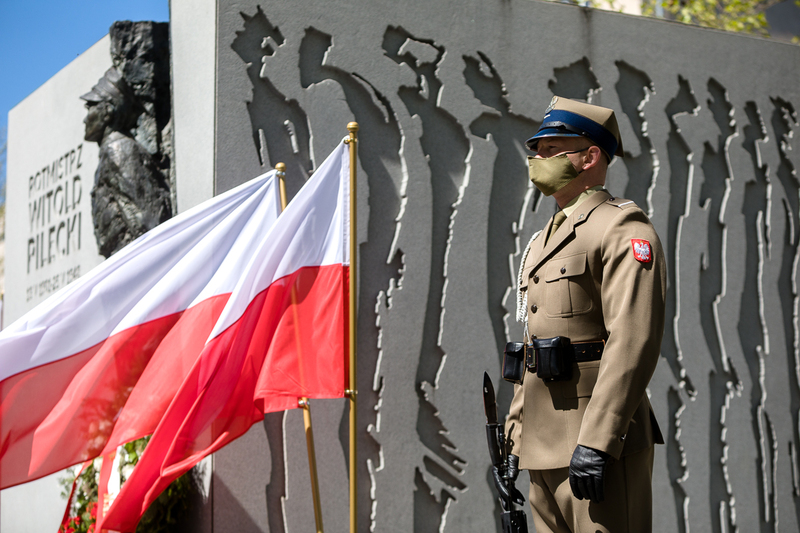
Commemorative celebrations at the Monument to Witold Pilecki on the 120th anniversary of his birth, Warsaw 13 May 2021 -
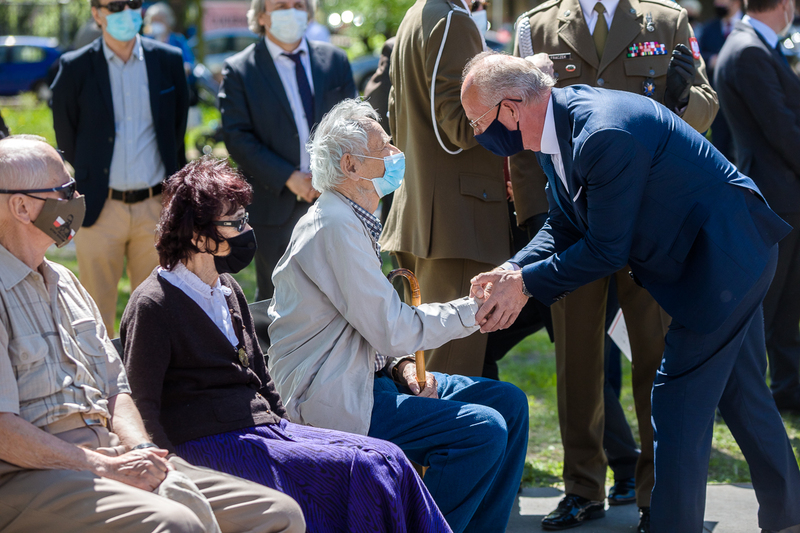
Commemorative celebrations at the Monument to Witold Pilecki on the 120th anniversary of his birth, Warsaw 13 May 2021 -
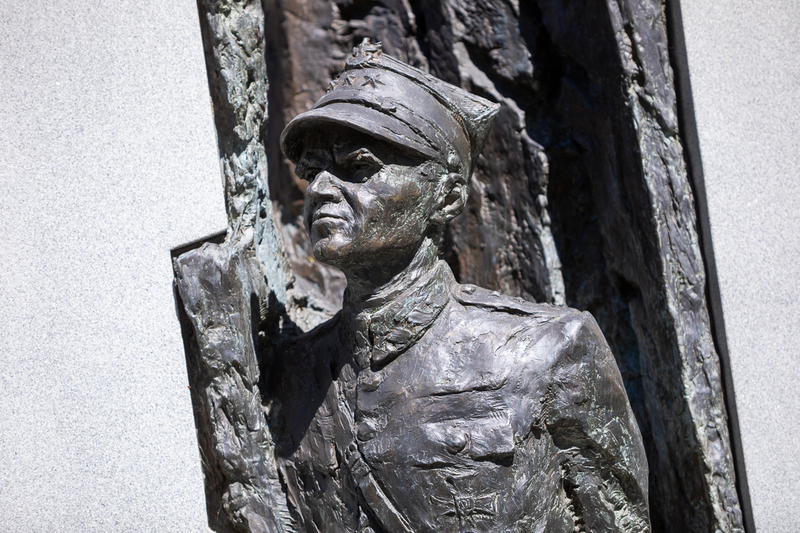
Commemorative celebrations at the Monument to Witold Pilecki on the 120th anniversary of his birth, Warsaw 13 May 2021 -
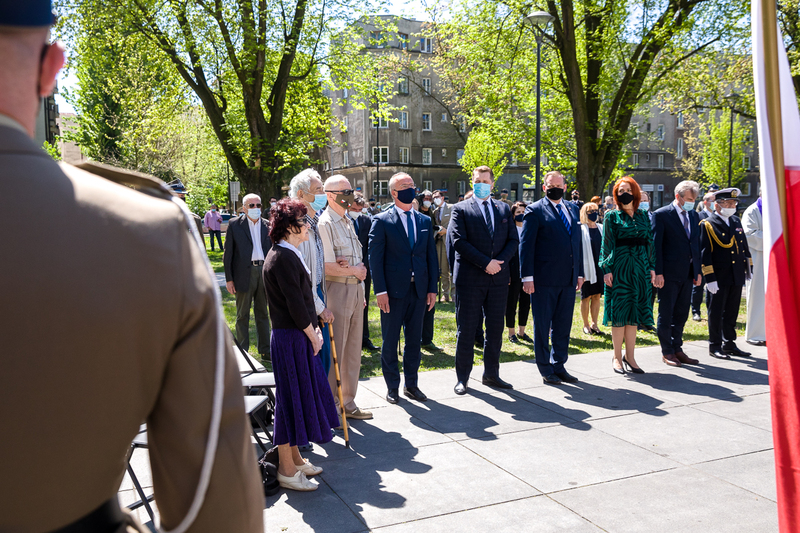
Commemorative celebrations at the Monument to Witold Pilecki on the 120th anniversary of his birth, Warsaw 13 May 2021 -
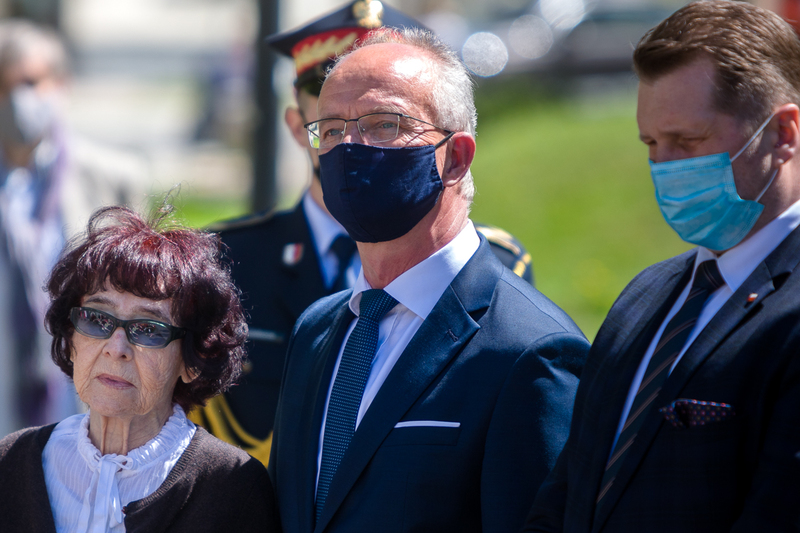
Commemorative celebrations at the Monument to Witold Pilecki on the 120th anniversary of his birth, Warsaw 13 May 2021 -

Commemorative celebrations at the Monument to Witold Pilecki on the 120th anniversary of his birth, Warsaw 13 May 2021 -
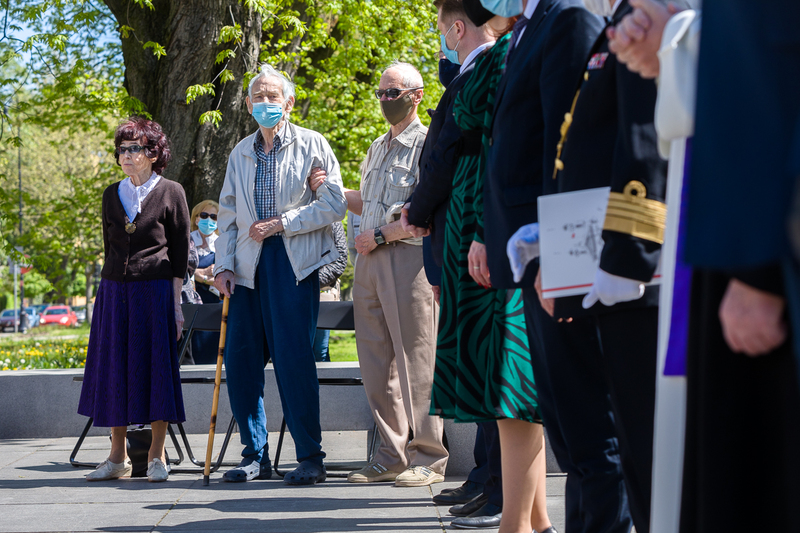
Commemorative celebrations at the Monument to Witold Pilecki on the 120th anniversary of his birth, Warsaw 13 May 2021 -
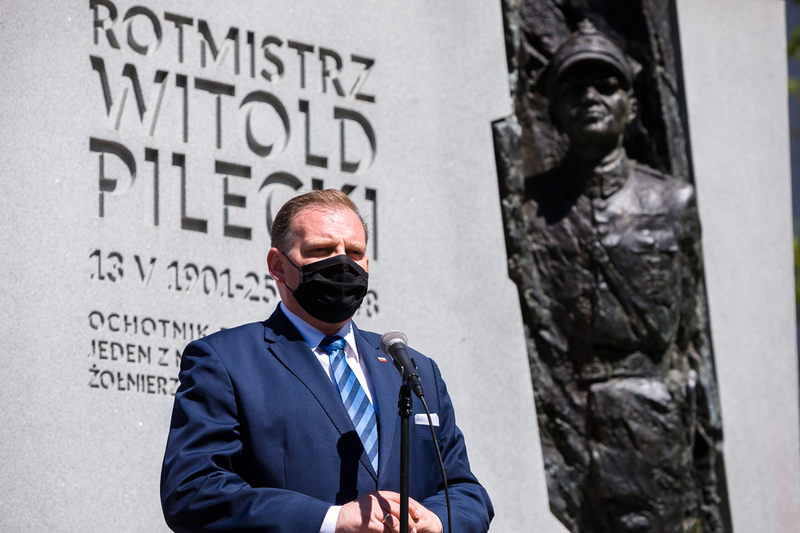
Commemorative celebrations at the Monument to Witold Pilecki on the 120th anniversary of his birth, Warsaw 13 May 2021 -
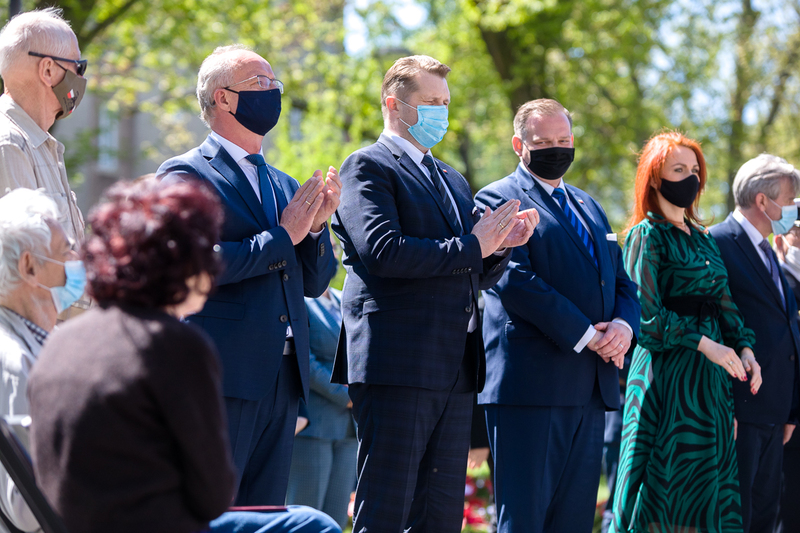
Commemorative celebrations at the Monument to Witold Pilecki on the 120th anniversary of his birth, Warsaw 13 May 2021 -

Commemorative celebrations at the Monument to Witold Pilecki on the 120th anniversary of his birth, Warsaw 13 May 2021 -
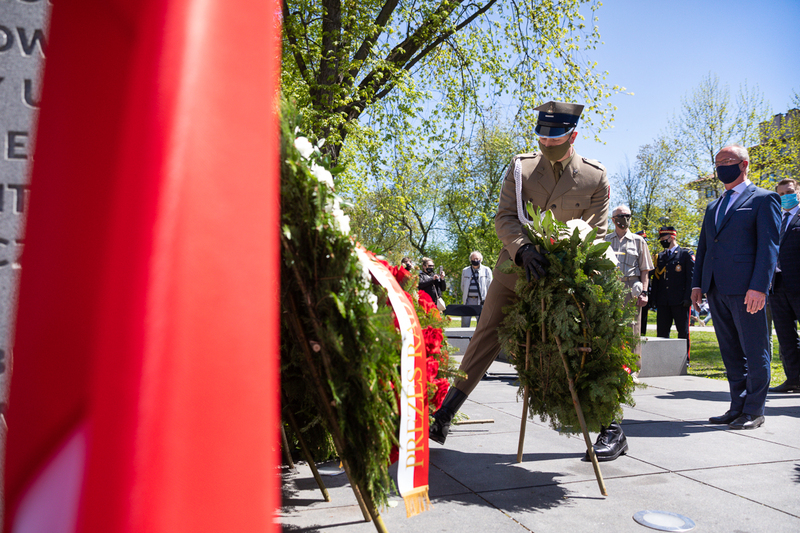
Commemorative celebrations at the Monument to Witold Pilecki on the 120th anniversary of his birth, Warsaw 13 May 2021 -
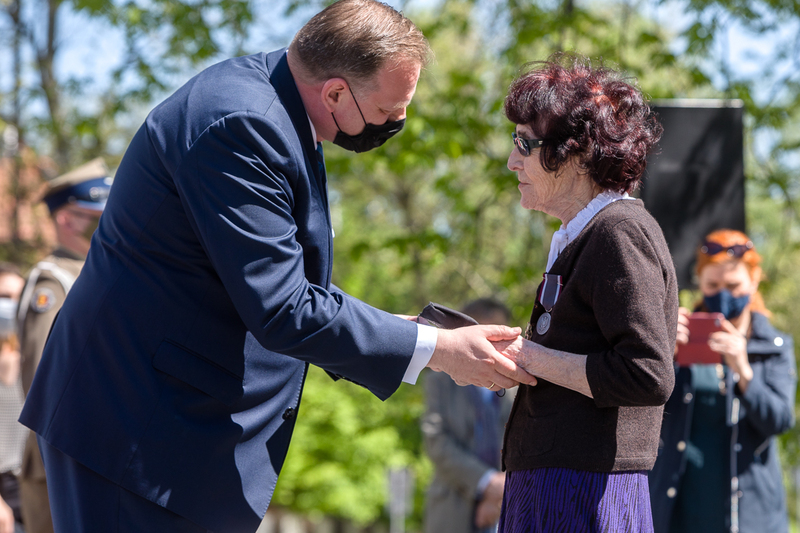
Commemorative celebrations at the Monument to Witold Pilecki on the 120th anniversary of his birth, Warsaw 13 May 2021 -

Commemorative celebrations at the Monument to Witold Pilecki on the 120th anniversary of his birth, Warsaw 13 May 2021 -
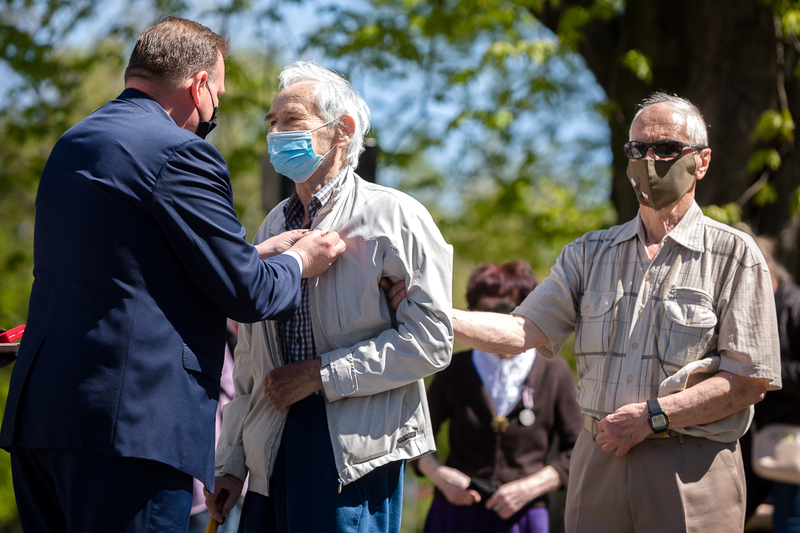
Commemorative celebrations at the Monument to Witold Pilecki on the 120th anniversary of his birth, Warsaw 13 May 2021 -
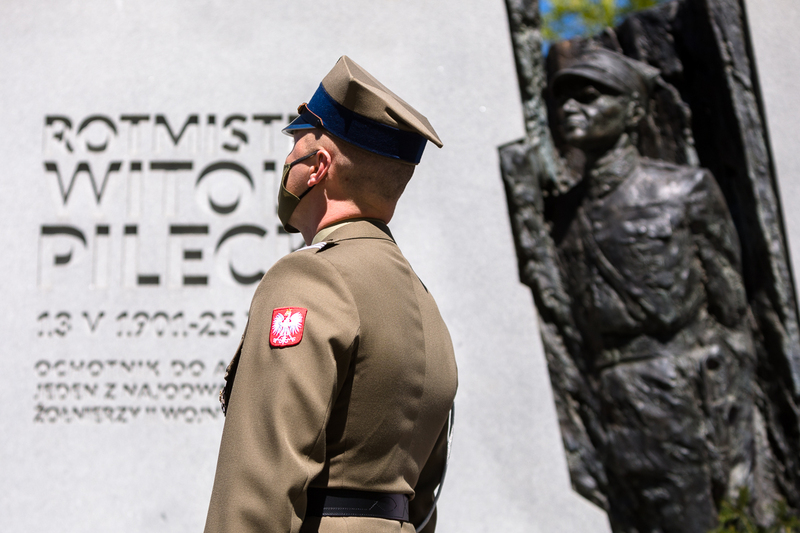
Commemorative celebrations at the Monument to Witold Pilecki on the 120th anniversary of his birth, Warsaw 13 May 2021 -
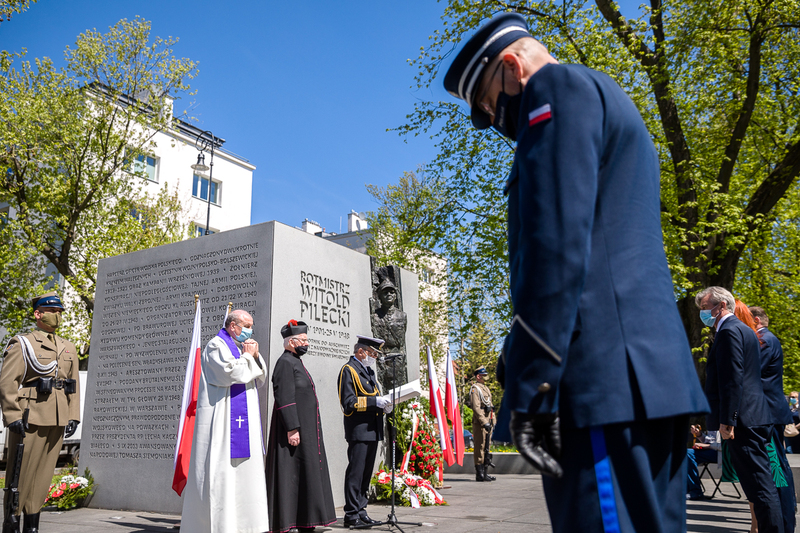
Commemorative celebrations at the Monument to Witold Pilecki on the 120th anniversary of his birth, Warsaw 13 May 2021 -
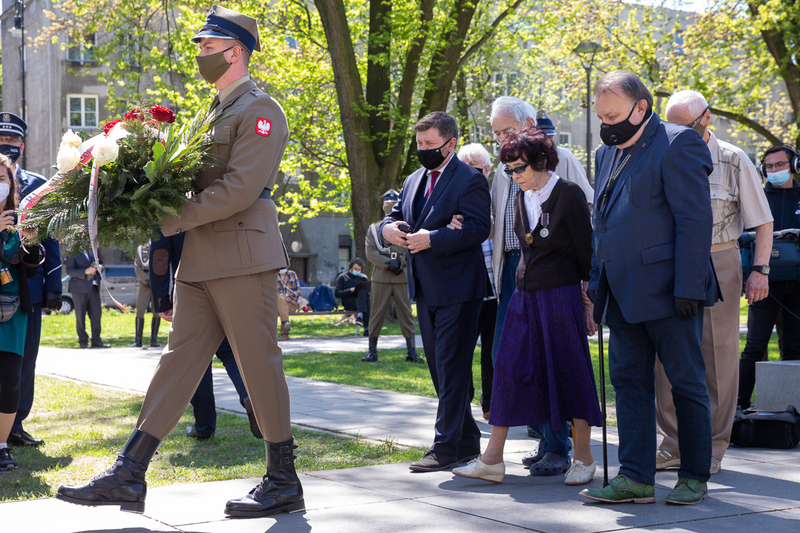
Commemorative celebrations at the Monument to Witold Pilecki on the 120th anniversary of his birth, Warsaw 13 May 2021 -
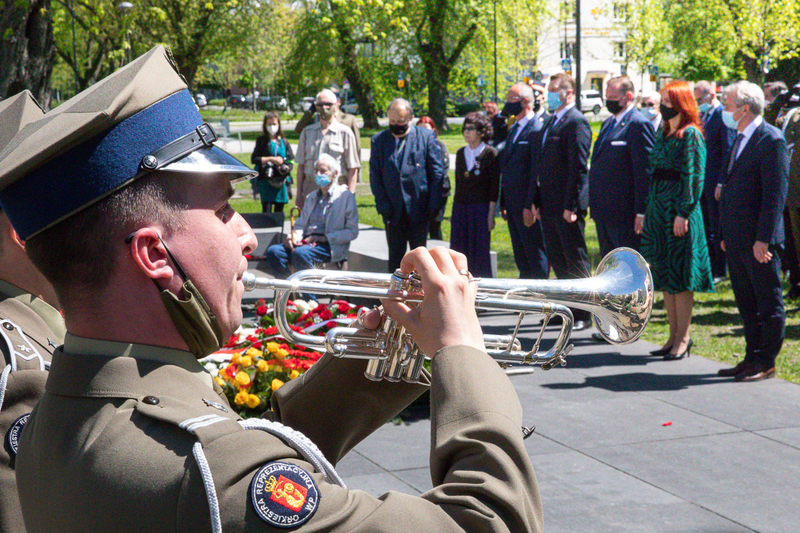
Commemorative celebrations at the Monument to Witold Pilecki on the 120th anniversary of his birth, Warsaw 13 May 2021
For more information on Witold Pilecki, please visit our website
We would also like to recommend the IPN's publications on Witold Pilecki:
Exhibitions devoted to Witold Pilecki and other Polish heroes were also presented in Australia:
Exhibitions on Polish Heroes in the Western Australian Parliament in Perth
